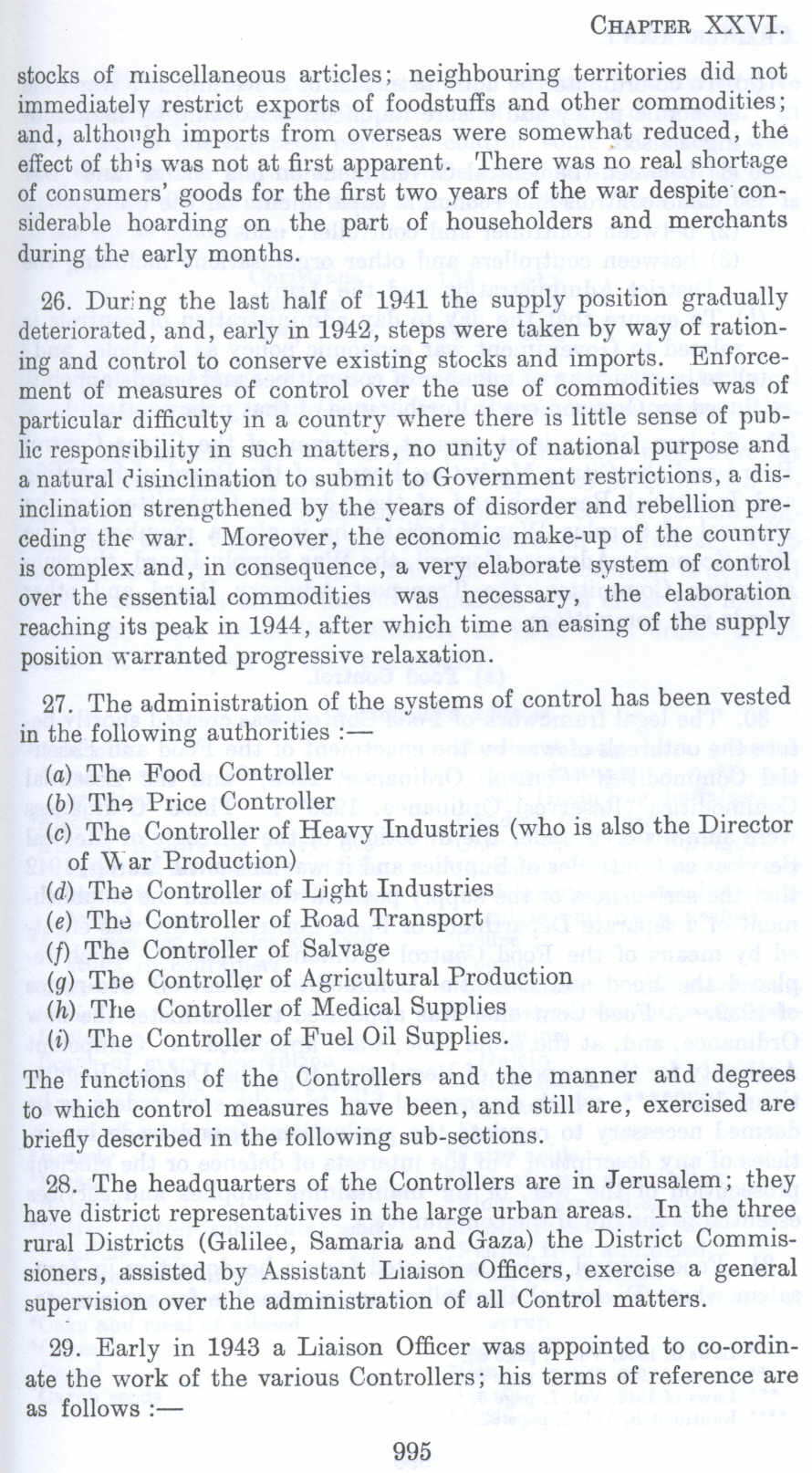| Prev | Next |  |
| Prev | Next |
| PalestineRemembered | About Us | Oral History | العربية | |
| Pictures | Zionist FAQs | Haavara | Maps | |
| Search |
| Camps |
| Districts |
| Acre |
| Baysan |
| Beersheba |
| Bethlehem |
| Gaza |
| Haifa |
| Hebron |
| Jaffa |
| Jericho |
| Jerusalem |
| Jinin |
| Nablus |
| Nazareth |
| Ramallah |
| al-Ramla |
| Safad |
| Tiberias |
| Tulkarm |
| Donate |
| Contact |
| Profile |
| Videos |
British Mandate: A Survey of Palestine: Volume II - Page 995 |
Disclaimer
The above documents, article, interviews, movies, podcasts, or stories reflects solely the research and opinions of its authors. PalestineRemembered.com makes its best effort to validate its contents.


Post Your Comment
*It should be NOTED that your email address won't be shared, and all communications between members will be routed via the website's mail server.
stocks of miscellaneous articles; neighbouring territories did not immediately restrict exports of foodstuffs and other commodities; and, although imports from overseas were somewhat reduced, the effect of this was not at first apparent. There was no real shortage of consumers' goods for the first two years of the war despite• considerable hoarding on the part of householders and merchants during the early months.
26. During the last half of 1941 the supply position gradually deteriorated, and, early in 1942, steps were taken by way of rationing and control to conserve existing stocks and imports. Enforcement of measures of control over the use of commodities was of particular difficulty in a country where there is little sense of public responsibility in such matters, no unity of national purpose and a natural disinclination to submit to Government restrictions, a disinclination strengthened by the years of disorder and rebellion preceding the war. Moreover, the economic make-up of the country is complex and, in consequence, a very elaborate system of control over the essential commodities was necessary, the elaboration reaching its peak in 1944, after which time an easing of the supply position warranted progressive relaxation.
27. The administration of the systems of control has been vested in the following authorities :- "
(a) The Food Controller
(b) The Price Controller
(c) The Controller of Heavy Industries (who is also the Director of War Production)
(d) The Controller of Light Industries (e) The Controller of Road Transport (f) The Controller of Salvage
(g) The Controller of Agricultural Production (h) The Controller of Medical Supplies
(i) The Controller of Fuel Oil Supplies.
The functions of the Controllers and the manner and degrees to which control measures have been, and still are, exercised are briefly described in the following sub-sections.
28. The headquarters of the Controllers are in Jerusalem; they have district representatives in the large urban areas. In the three rural Districts (Galilee, Samaria and Gaza) the District Commissioners, assisted by Assistant Liaison Officers, exercise a general supervision over the administration of all Control matters.
29. Early in 1943 a Liaison Officer was appointed to co-ordinate the work of the various Controllers; his terms of reference are as follows:-
995